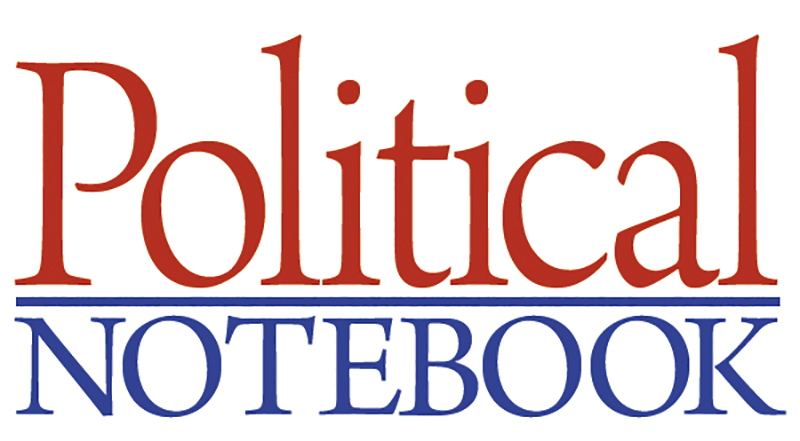RALEIGH — Rowan County’s three Republican representatives will serve on numerous committees for the 2021-22 legislative session, with Rep. Wayne Sasser serving as N.C. House Health Committee chairman in his second term.
Sasser was re-elected to his second term in November and now represents parts of Cabarrus, Stanly and Rowan County. He’s the lone pharmacist in North Carolina’s General Assembly, and says he’s excited to use that expertise to get to work.
“For a sophomore, second-term legislator, that’s a pretty good move up,” Sasser told the Post. “I’m looking forward to the opportunity to work more and hopefully accomplish more and definitely be involved more in the decisions of what gets heard.”
Sasser will also chair the Appropriations, Health and Human Services Committee and serve as a member on the Joint Legislative Oversight Committee on Health and Human Services.
Rep. Harry Warren, who was recently re-elected to his sixth term in the House and represents the 76th district, will chair the House State Personnel Committee again and will serve as co-chair on the Joint Legislative Committee on Local Government. Warren will serve as vice chair on the Joint Legislative Oversight Committee on Unemployment Insurance, which Rep. Julia Howard of the 77th district currently co-chairs.
Warren will serve as a member of other non-standing committees, including the Revenue Laws Study Committee, the Joint Legislative Elections Oversight Committee and the Joint Legislative Oversight on the North Carolina State Lottery.
Howard will continue to chair the Finance Committee, which assesses the state’s available revenue before lawmakers appropriate funds to various agencies. She will also co-chair the Revenue Laws Study Committee and serve as a member of the Joint Legislative Commission on Governmental Operations as well as the Joint Legislative Program Evaluation Oversight Committee.
Gov. Cooper names retired Lt. Gen. Walter Gaskin to lead Department of Military and Veterans Affairs
RALEIGH — Gov. Roy Cooper last week tapped Lt. General Walter Gaskin to lead North Carolina’s Department of Military and Veterans Affairs.
Gaskin has served on various military-related commissions since his retirement from the Marines in 2013.
Since September, Gaskin has served on the North Carolina Military Affairs Commission. Between 2010-13, he served as deputy chairman of the North Atlantic Treaty Organization (NATO) Military Committee in Brussels, Belgium, where he provided counsel on operations in Iraq, Afghanistan and Libya.
Additionally, Gaskin also served as the Commanding General of the 2nd Marine Division at Camp Lejeune and the Commanding General of II Marine Expeditionary Force (Forward) from 2006-08. Gaskin also served with 3rd Force Service Support Group (Echo and Foxtrot Logistics Support Units); 3rd Marine Division (Division Command Center) in Okinawa, Japan; and with Combined Forces Command C/J-3, Seoul, South Korea as the Head of Ground Forces Branch.
Most recently, Gaskin served as CEO of La Porte Technology Defense, or LAPORTECH, which is an engineering Technical Development Plan supplier for new and existing specialty defense and commercial vehicles. He also served as Managing Director in Charge of Operation Management Complex of Global Bank in Irvine, California.
“After a career at the highest levels of the United States Marine Corps, Walter Gaskin understands well the challenges and opportunities faced by active duty military personnel, veterans and their families, and he shares my belief that North Carolina should be the most veteran- and military-friendly state in the nation,” Cooper said in a statement. “I appreciate General Gaskin’s willingness to serve our state in this new capacity and look forward to his leadership at the Department of Military and Veterans Affairs.”
Gaskin said in a statement that, despite his retirement, he’s continued to serve the nation’s military members and veterans.
“It is my honor to serve the members of our military, veterans and their families in the state of North Carolina. Although I retired from active duty in 2013, my commitment to providing the opportunities, resources and care owed to our military members and veterans has never ceased,” Gaskin said. “I look forward to working with Governor Cooper and his team as we continue this critical work.”
Rep. Budd introduces bill to fight crime using financial technology; reintroduces ‘Pandemic Health Care Access Act,’
Rep. Ted Budd, the Republican representing North Carolina’s 13th Congressional District in the U.S. House, has introduced a financial technology protection bill and reintroduced a bill intended to waive high deductible health plan requirements for health savings accounts.
The Financial Technology Protection Act is intended to help stop the illicit use of new financial technologies. It’s a bill that Budd introduced in 2019. Though it unanimously passed the House, it died in the Senate. In 2019, the bill established the Independent Financial Technology Task Force to Combat Terrorism and Illicit Financing, which would have researched new financial technologies, such as digital currencies, and their use in terrorism or other illicit activities. The bill also directed the Department of Treasury to provide a reward for a person who provides information leading to the conviction of someone involved with illicit use of digital currencies.
“As we move into an increasingly digital and technology centered world, criminals and terrorists are using new technologies to wreak havoc on our fellow Americans,” Budd said in a statement.
Budd said his bill would allow academia and the private sector to apply for grants to develop ideas and programs aimed at combating the illicit use of digital currencies.
Another bill Budd introduced this month is the Pandemic Health Care Access Act, which aims to temporarily decouple Health Savings Accounts (HSAs) from high deductible health care plans. That could allow more enrollees to use HSAs to save for health care expenses, particularly amidst the pandemic. Those who currently have insurance via Medicare, Affordable Care Act, TRICARE, the VA, Indian Health Service or any employer plan would be eligible.
The legislation, Budd said in a statement, allows Americans to use their HSA funds to pay for any increased health care costs, including their deductible and direct primary care.
“The American people should have as much healthcare flexibility as possible during the pandemic. Folks shouldn’t be forced into high deductible plans if they want to use an HSA to meet their pandemic expenses,” Budd said in a statement. “I’m proud to introduce legislation to increase affordable healthcare during this challenging time.”
















